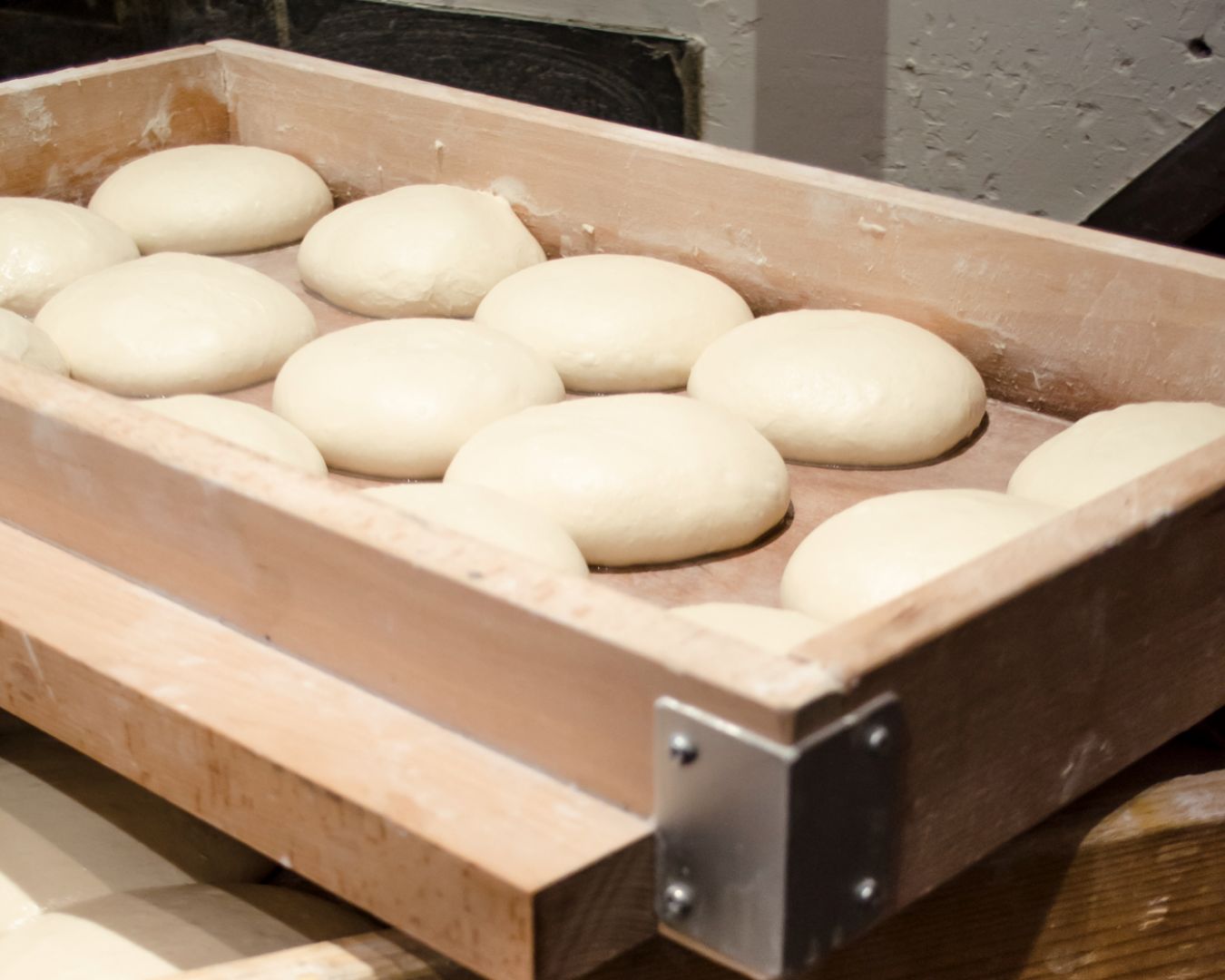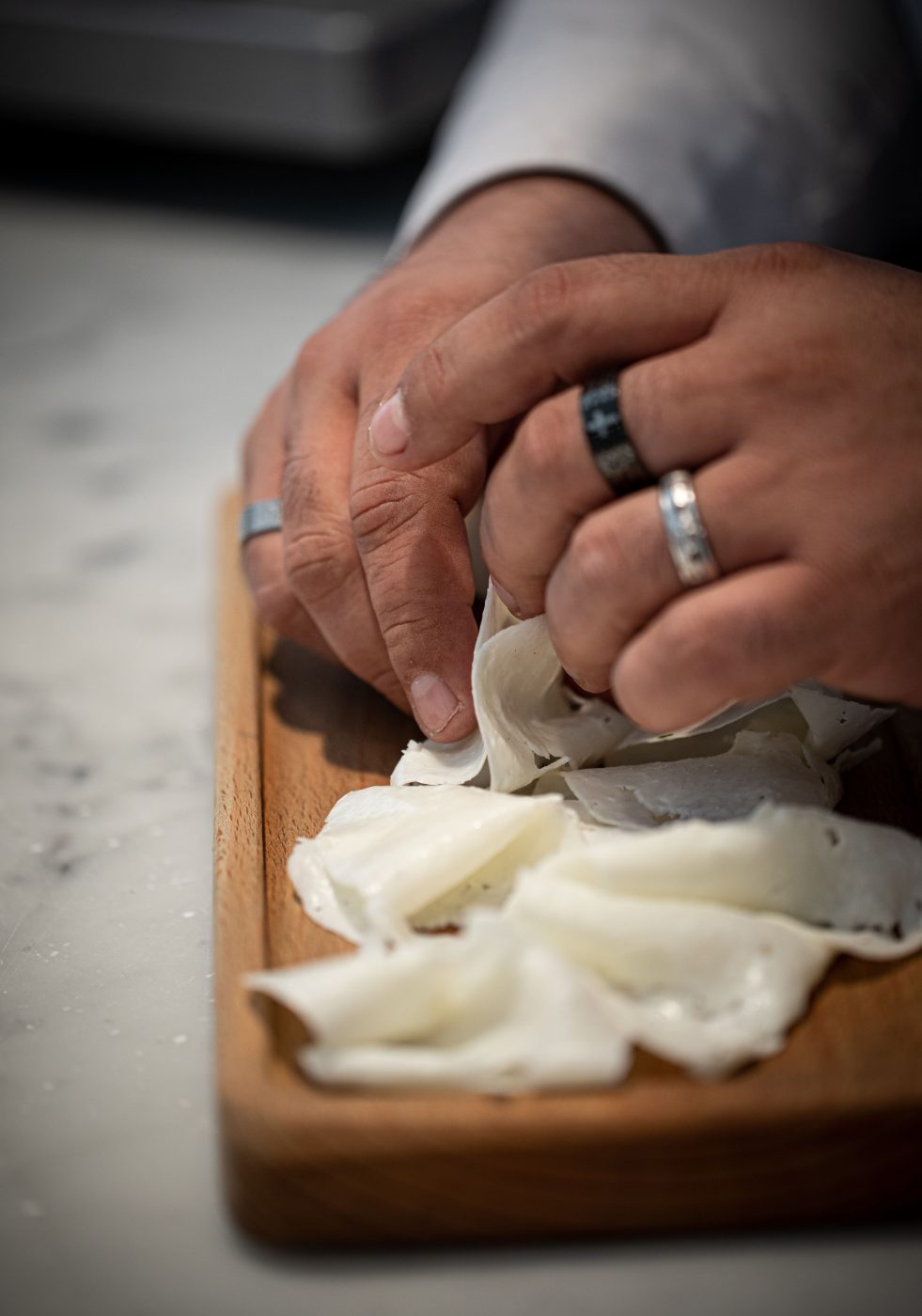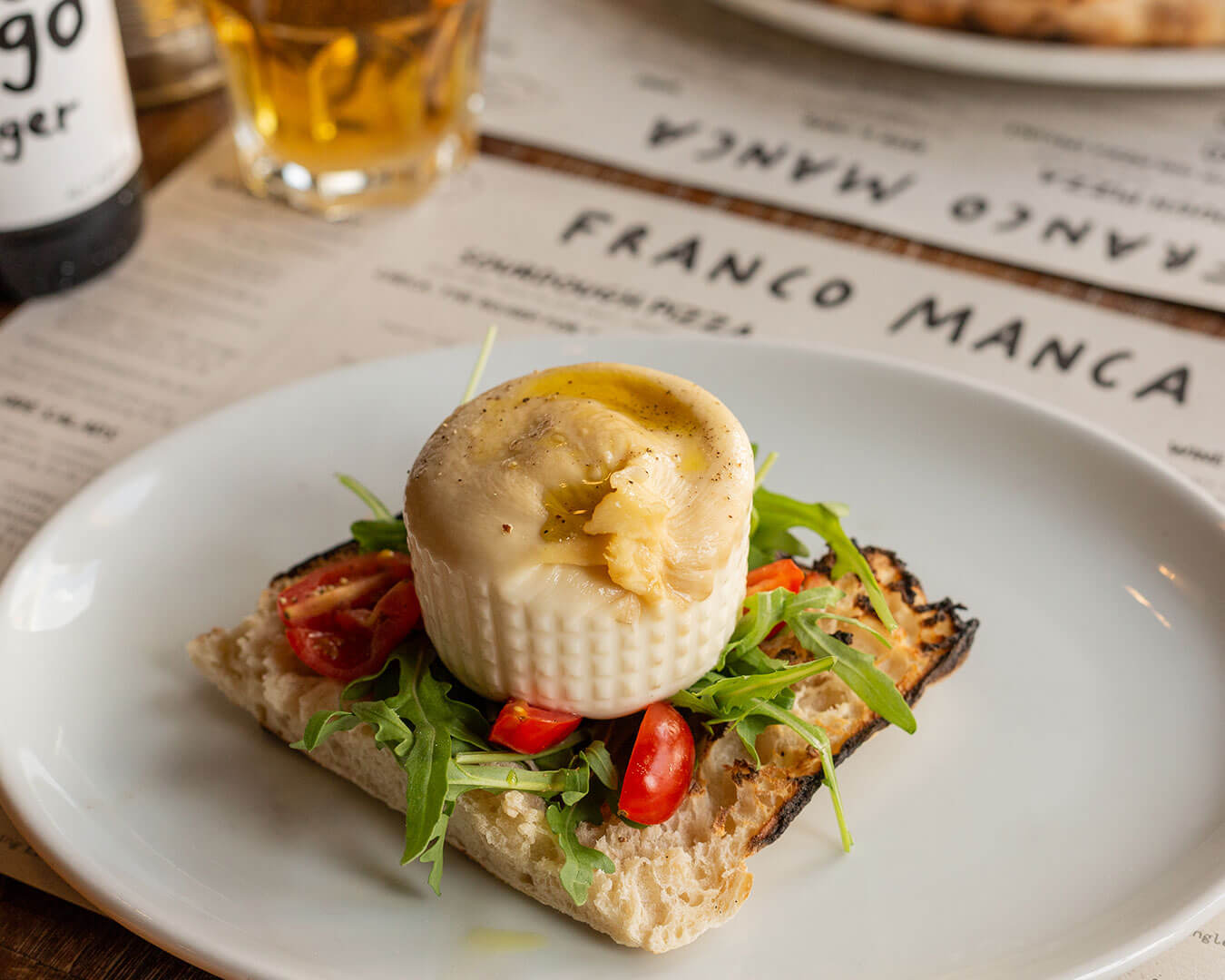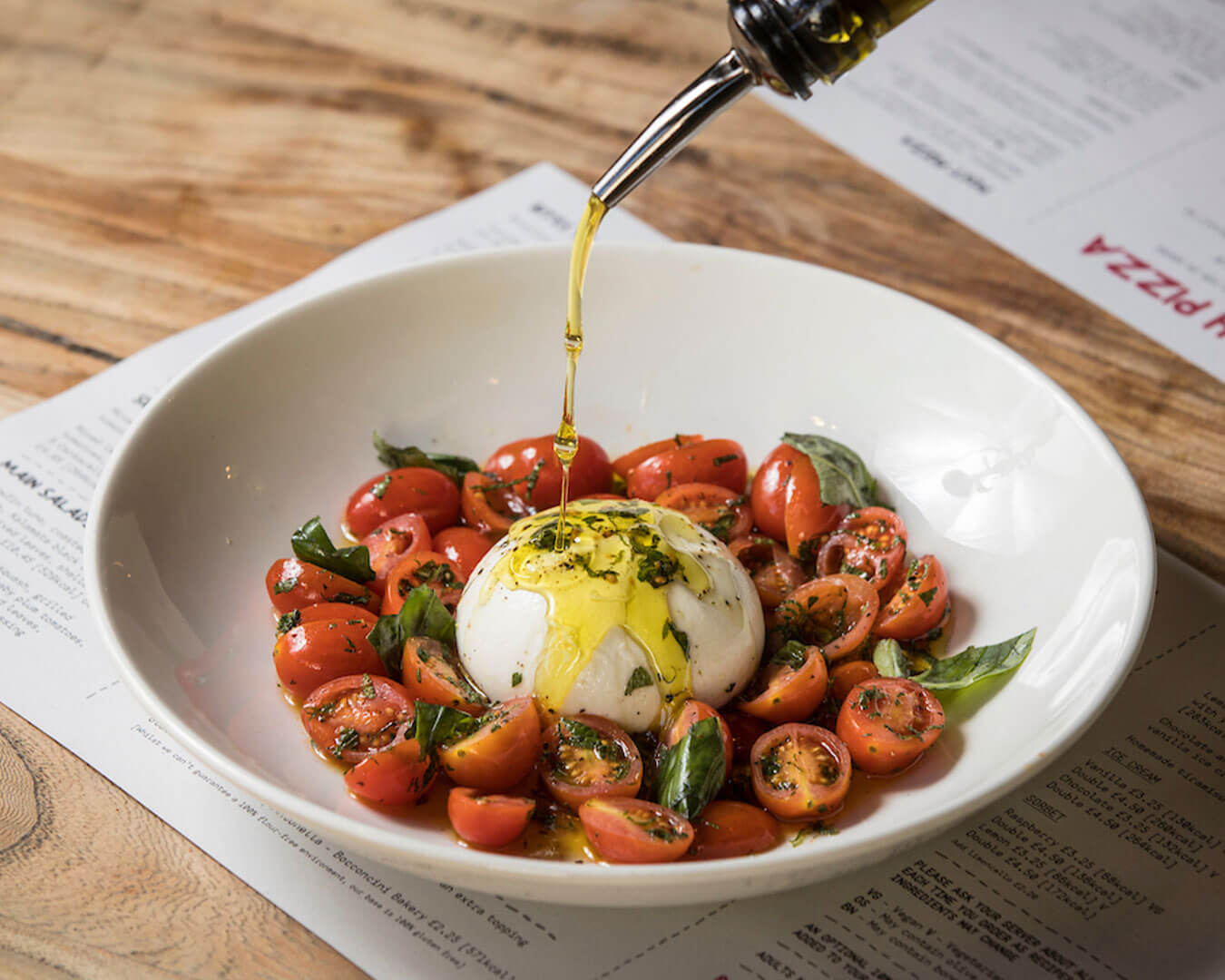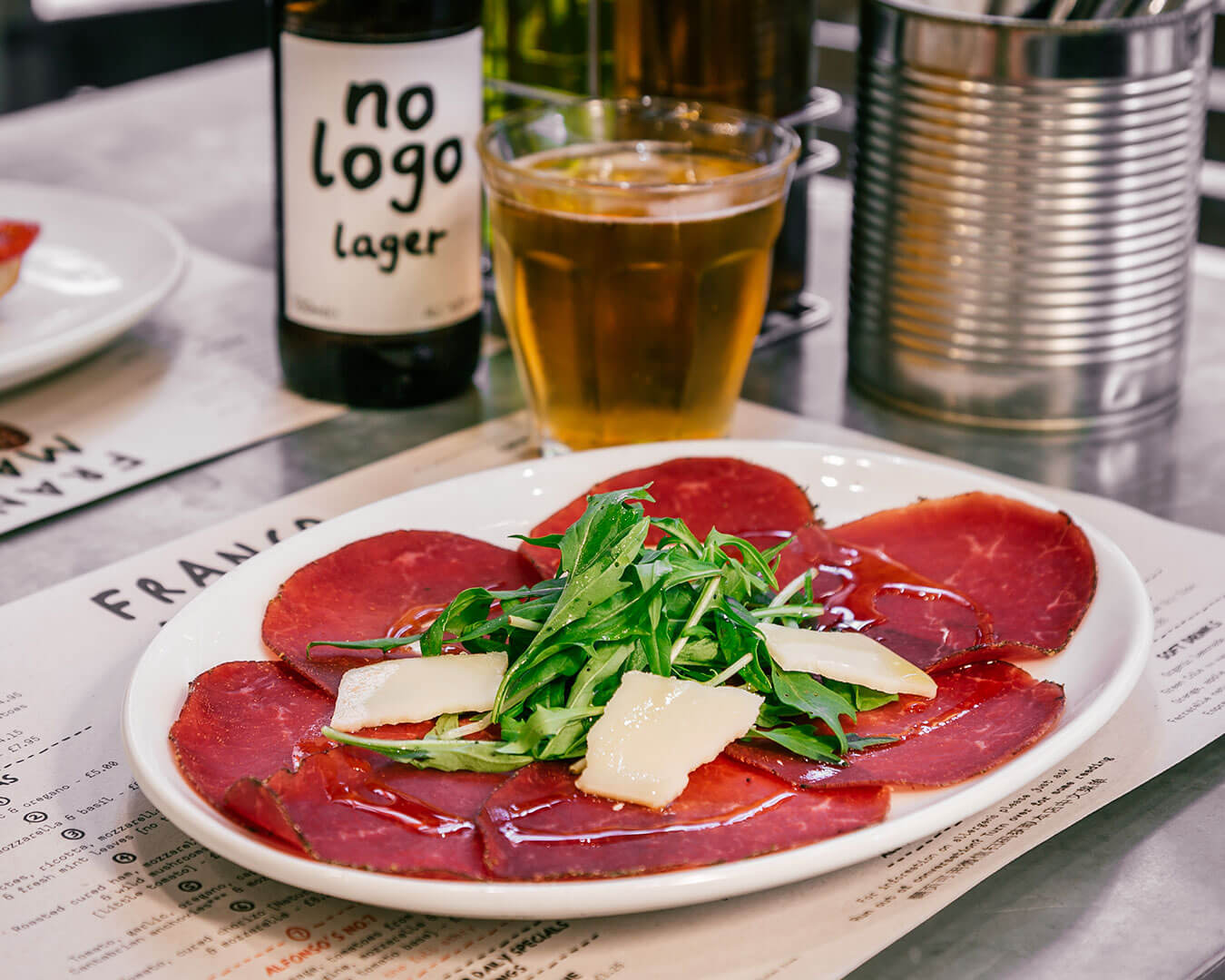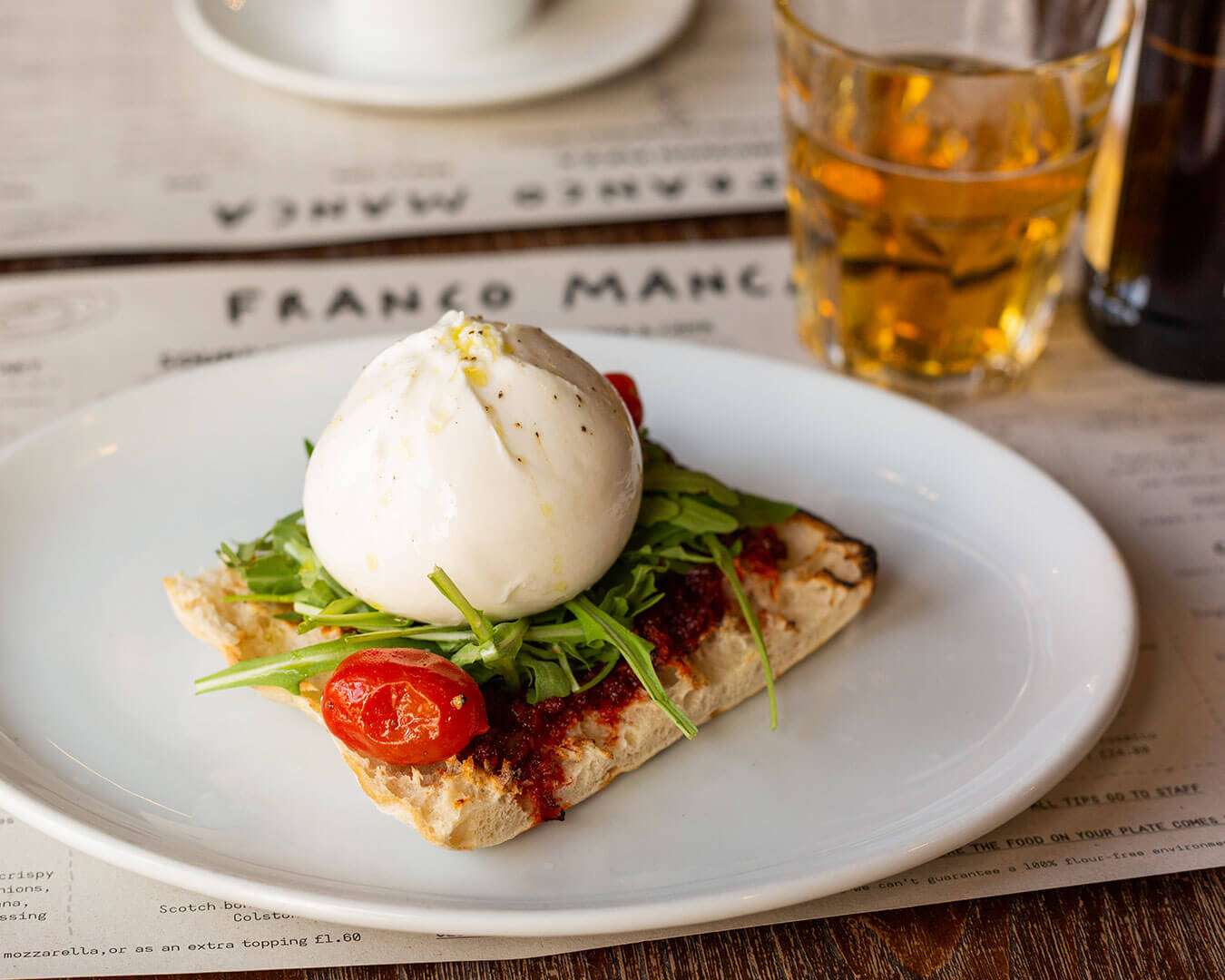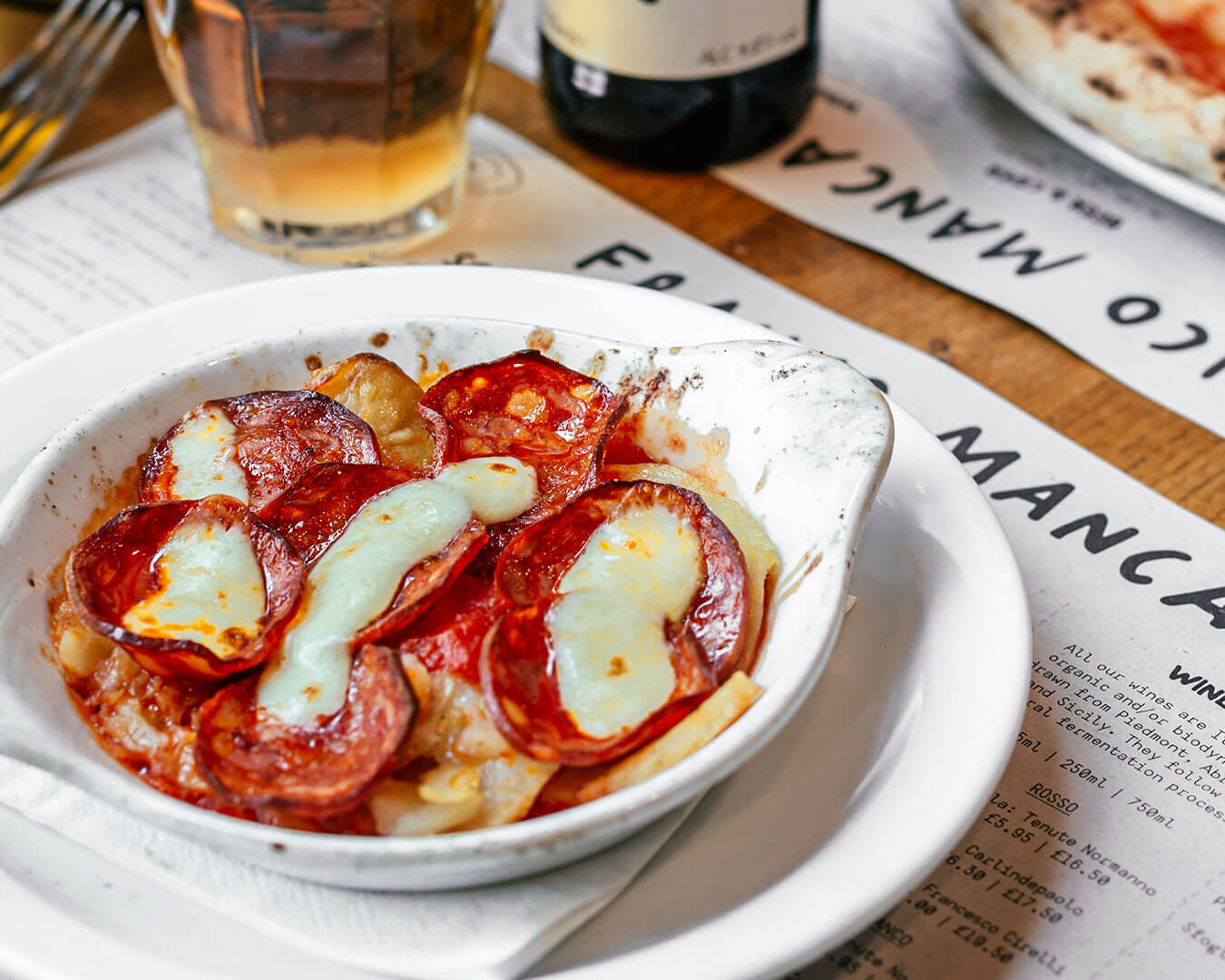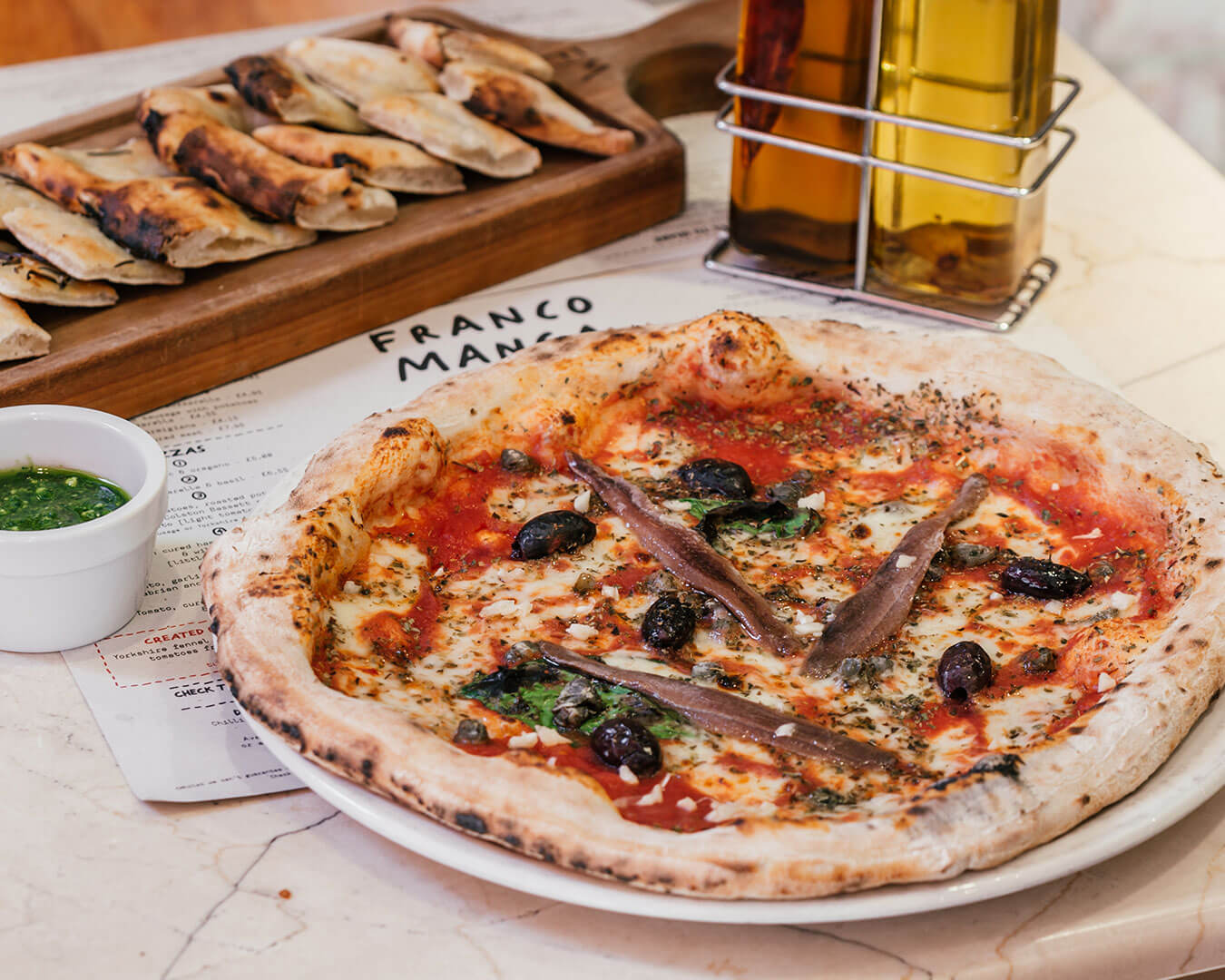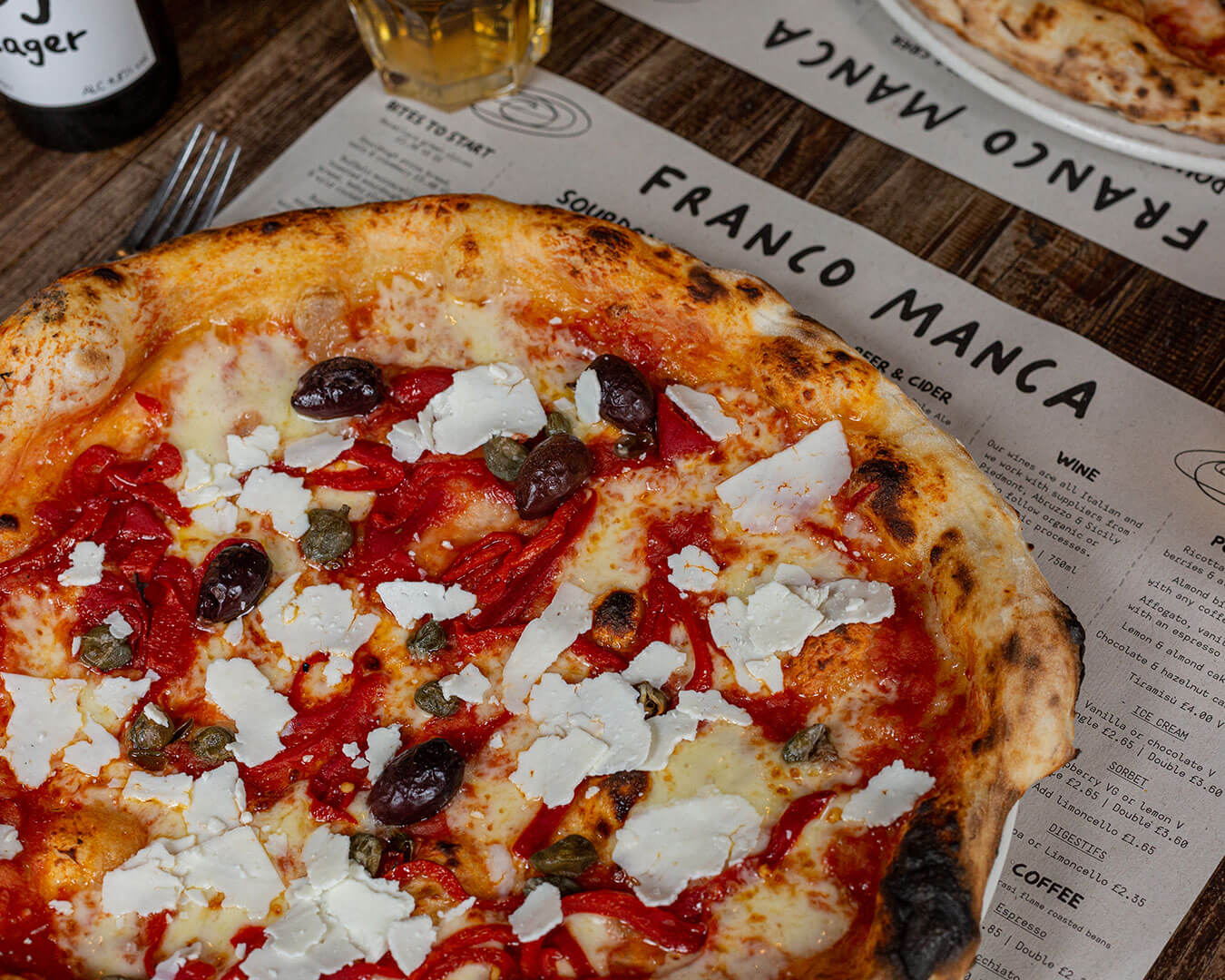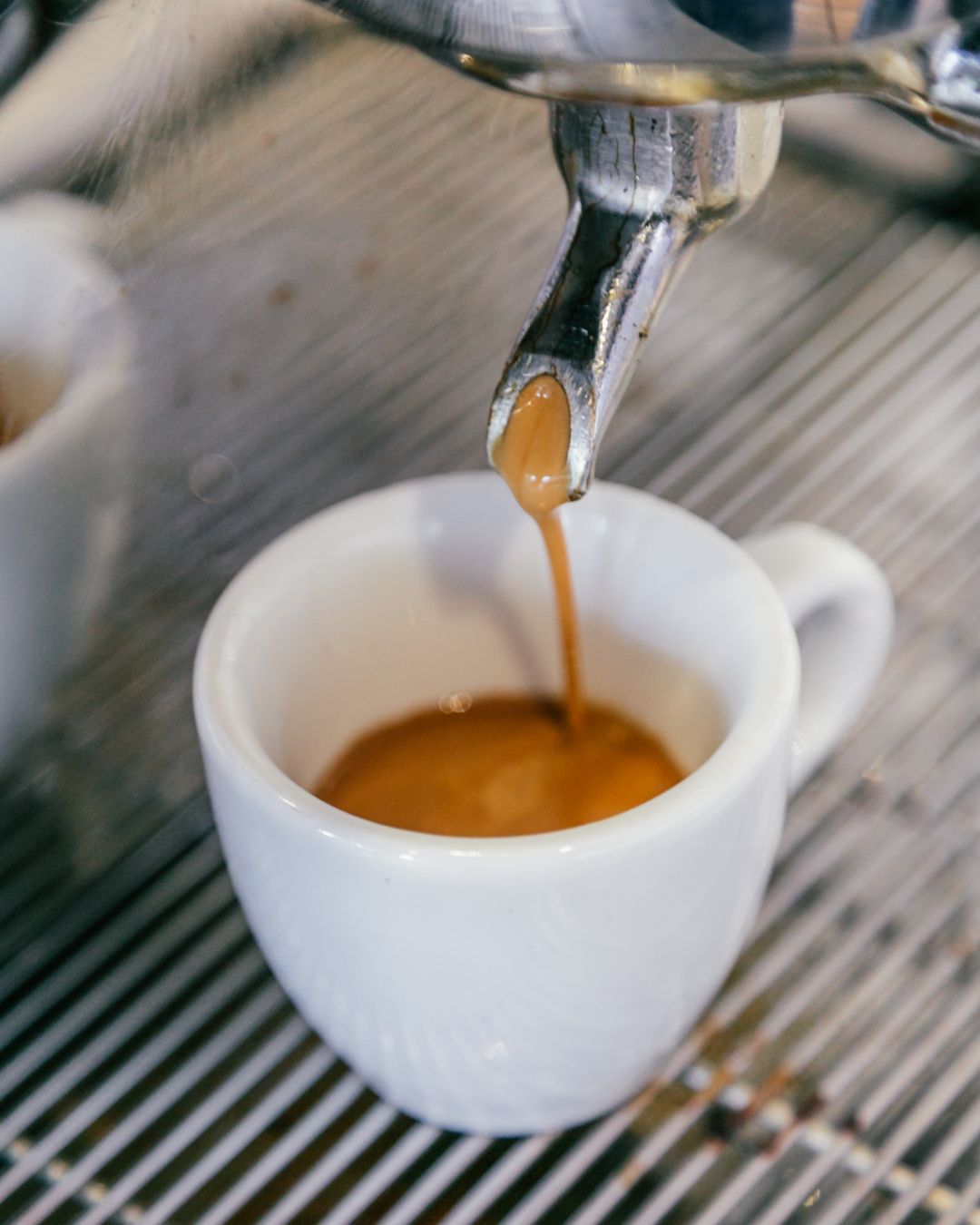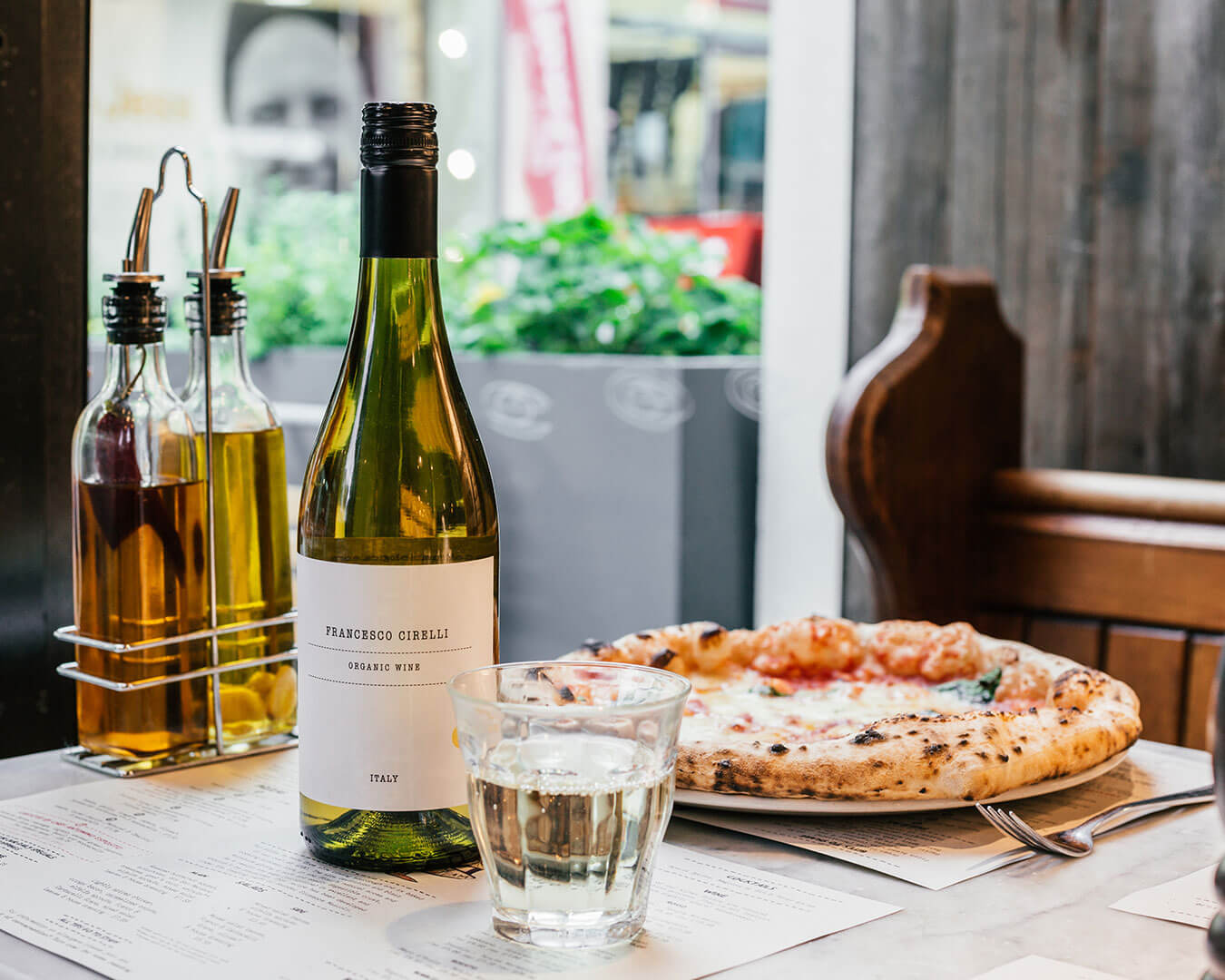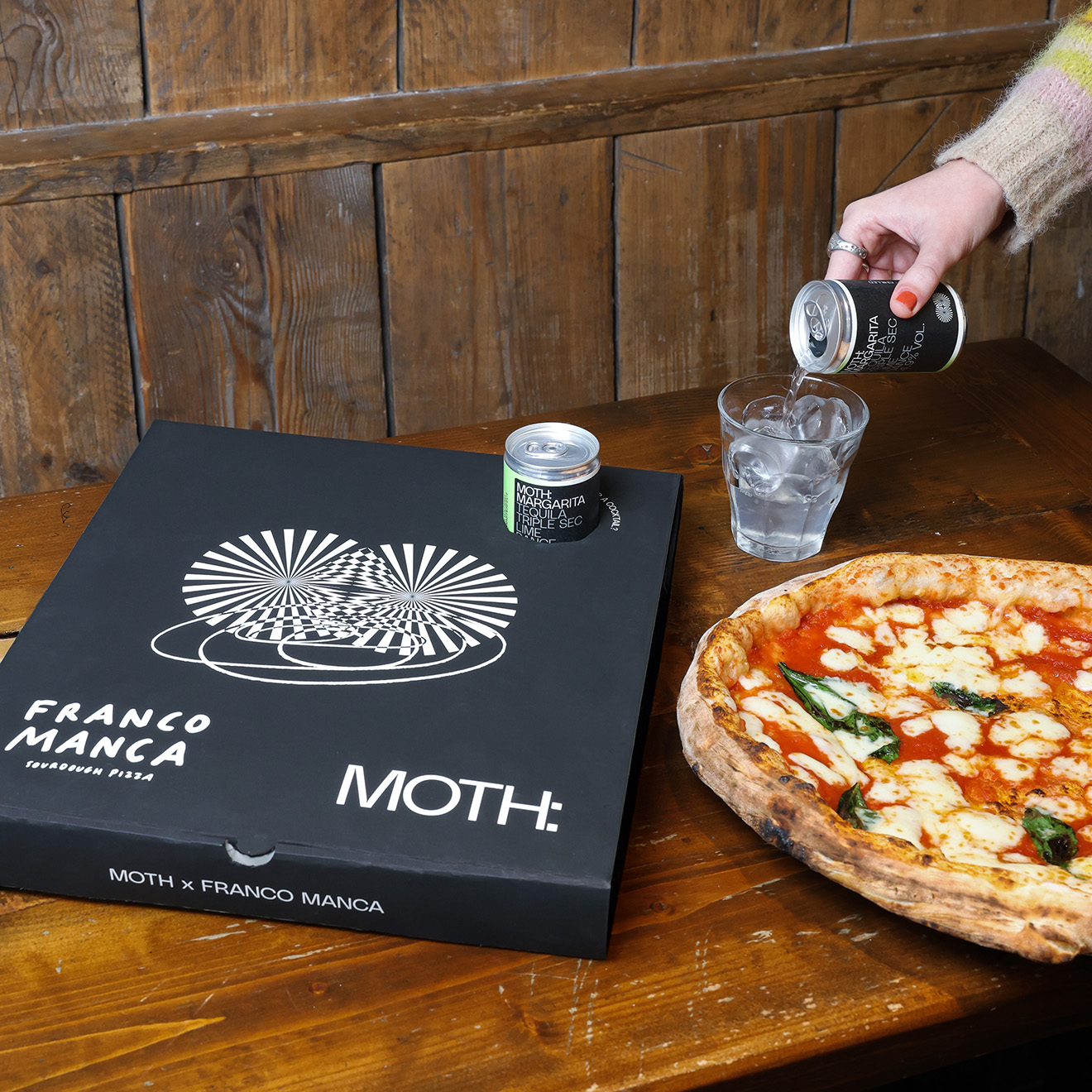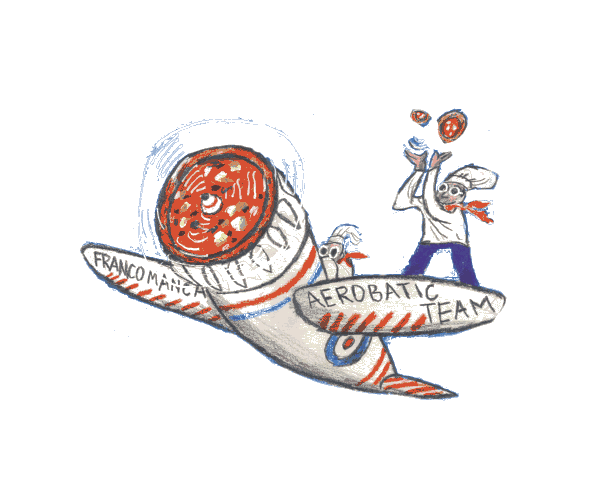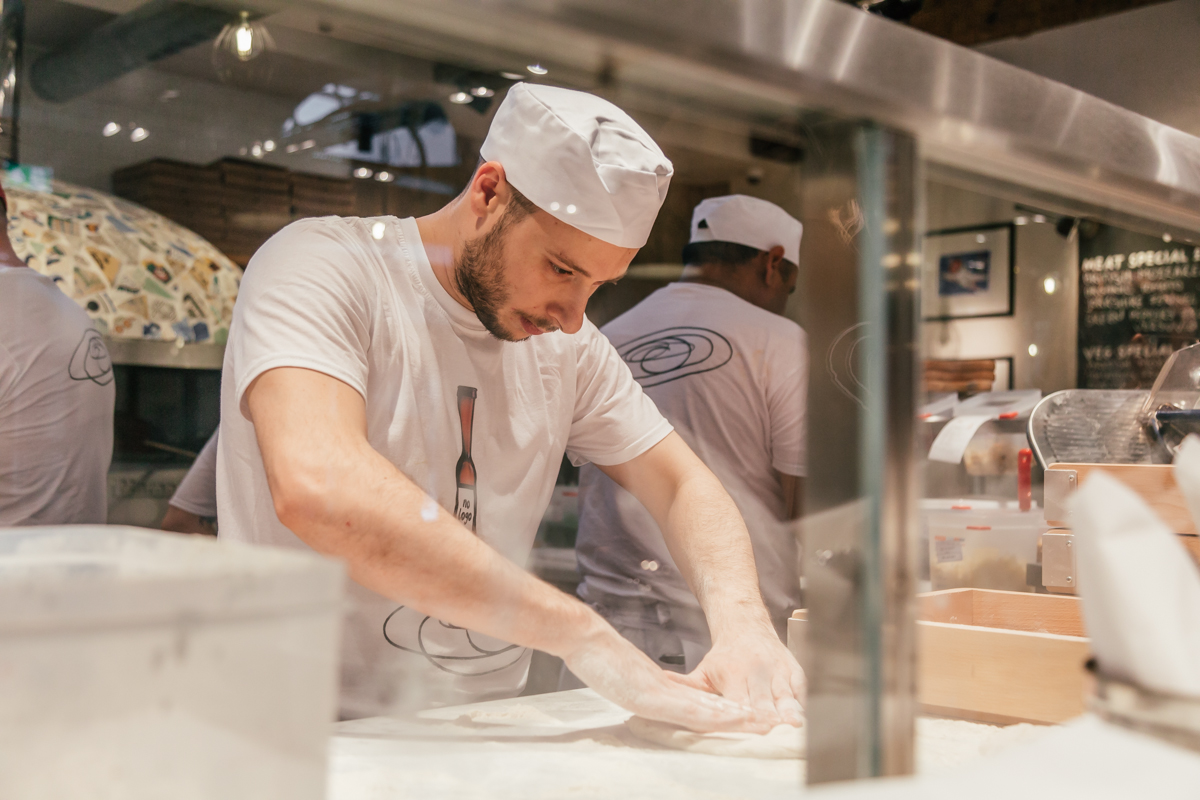
Slow fast food
Good food takes time. That’s why, since opening our first pizzeria in Brixton Market in 2008, we’ve championed slow-rising sourdough pizza and properly sourced, small supplier, seasonal ingredients.
When you eat at Franco Manca, you support people working close to the land.
Small farms = Big taste.
It’s good to know where the things on your plate come from.
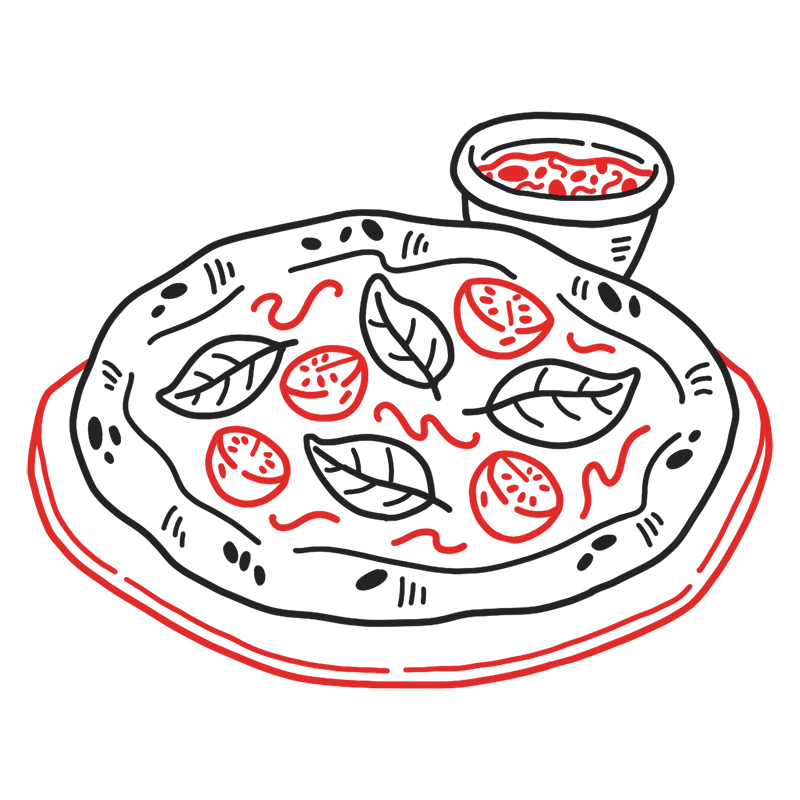
The dough
The secret to our sourdough is our starter. Dating back to the late 18th century, it was procured by our founder Giuseppe from a bakery near his hometown of Naples. It’s a live culture of Wildfarmed flour, water and wild yeast. Until the Middle Ages starters were essential for breadmaking. We still think it’s the most delicious way to make bread.
Although the cultures in a starter morph over time, we love the dedication and continuity our starter represents. It stretches back through time like a family tree. Every day we feed our starter and ferment our dough for at least 24 hours, before making it into the foundation for your pizza. Your pizza might take minutes to devour, but it was hundreds of years in making.
Halloumi
Our halloumi D.O.P cheese is handmade in Cyprus by Louis Loizou, whose family has been making halloumi for 50 years. It’s featured on our no. 3 pizza: traditional halloumi D.O.P. cheese, roasted courgettes, mozzarella & marinated baby plum tomatoes with mint (light tomato base).
The other cheeses
There’s more to cheese than mozzarella. Lots of our other cheeses come from award-winning suppliers, in Italy and the UK. These include a British ricotta, Sardinian hard goat’s cheese, Colston Bassett Stilton, and Franco & Cantarelli Vegetarian Grana. Check our specials board for guest cheeses too.
Tomatoes
Tomatoes matter. Our tomato base is from 100% organic agriculture and 100% Italian. Our red piennolo D.O.P. tomatoes and yellow tomatoes come from the volcanic area of Vesuvio (Naples, Campania) and San Marzano from Dell’Argo Sarnese-Nocerino D.O.P.
Cantabrian Anchovies
You have to swim a lot of ocean to find the perfect anchovy. We found ours somewhere between Santander and Bilbao. Once a year, between the months of March and June, the young anchovies swimming in the Bay of Biscay reach their peak in fat content and flavour. The anchovies we use are caught only in those months, and only using traditional purse seine nets and sustainable surface fishing methods. Meaty, smooth and intense, they are then prepared using ancient salting methods by Consorcio.
Capers from Salina
Our capers come from the tiny island of Salina, off the southern Italian coast. They’re picked in the area of Pollara and Malfa. If you really want to impress your food-lover friends, you can tell them that our capers are of the Nocella variety, which grow plump, round and bright green with pinkish stripes. Our friend Antonino uses an ancient technique of reproducing the capers by plant cutting instead of planting seeds. This means he is able to cultivate only the best shrubs.
It also means he can grow them wild and without any fertilisers, pesticides or added substances. Once picked, his caper berries and buds are cured in sea salt, for over a month and a half, during which the salt is regularly changed and the capers aired.
Once they are ready, they are preserved in white wine vinegar, olive oil or under salt. Almost everything is done by hand to protect the delicate buds. We’ve tried a lot of capers in our time, and none have matched those found on the island of Salina.
Still hungry? Go for seconds.
Bringing Napoli eating culture. Closer to you.
Find a pizzeria near you. Then eat your crusts.
